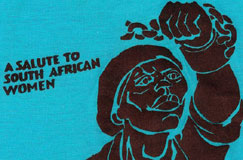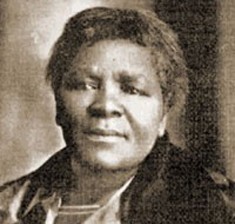Charlotte Maxeke's home to become a museum
9 March 2015
The house of struggle stalwart Charlotte Maxeke, one of the leaders of the famous 1956
Women's March, is to be converted into a museum and interpretation centre, Gauteng
Infrastructure Development MEC Nandi Mayathula-Khoza announced on Sunday.
Mayathula-Khoza delivered the keynote address on behalf of Gauteng Premier David
Makhura at an event held at Kliptown's Walter Sisulu Square of Dedication to mark
International Women's Day,
She said remembering Maxeke in this way would enhance "the clarion call of the UN
Women's Beijing +20 campaign: Empowering women, empowering humanity - picture
it!"
She said the Gauteng government had proposed the theme, "Make it happen: together
moving Gauteng city region forward for women" for this year's International Women's
Day celebration.
'Gender priorities'
"We decided to partner with women from all walks of life and sectors in this celebration
to give
expression to gender priorities … and to showcase programmes and direct
service-delivery initiatives to improve women's lives in partnership with women's
organisations," she said.
Charlotte Maxeke (nee Manye) was born in Ramokgopa in the Polokwane (Pietersburg)
District on April 7 1874. A religious leader, social worker and political activist, she is
known as the "Mother of Black Freedom" in South Africa.
Maxeke's name has been given to the former Johannesburg General Hospital, which is
now known as the Charlotte Maxeke Johannesburg Academic Hospital. Durban has a
street named after her and the South African Navy has named a submarine in her
honour, the SAS Charlotte Maxeke.
Mayathula-Khoza said the provincial government was also celebrating the 1954
Women's Charter, which aimed to unite women in common action for the removal of all
political, legal, economic and social obstacles and to strive for women's rights.
The MEC praised the
provincial government for the achievements in improving the
quality of lives of women: "We have removed laws, regulations, conventions and
customs that discriminate against women. More women today occupy positions of power
in all spheres of life. We continue to accelerate the implementation of gender equality
and women empowerment policies.
"We are determined to pursue the goal of 50/50 representation in all decision-making
positions. In fact here in Gauteng, we have 60% of women representation in the
[provincial] cabinet … and 50% representation of women in the Gauteng
legislature," she said.
Source: SAnews.gov.za





